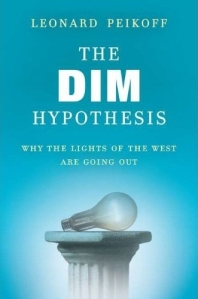 The passage of ObamaCare, and the ongoing debate over it, is the culmination of over 80 years of ever-increasing government involvement in the healthcare industry. It is also the culmination of about 50 years of obviously increasing healthcare costs.
The passage of ObamaCare, and the ongoing debate over it, is the culmination of over 80 years of ever-increasing government involvement in the healthcare industry. It is also the culmination of about 50 years of obviously increasing healthcare costs.
The following is a copy of an email that I sent to talk-show host, Bill Handel, on KFI AM 640 radio in the Los Angeles area:
Dear Bill,
You have observed the indisputably bad state of American healthcare, with its poor performance and high, constantly rising costs, and concluded that the USA would be better off embracing a socialized healthcare system more like that of France. You have implied that these are our only two options. But I am sending you this email to let you know that there is a third alternative; one that is vastly superior to the two that you have considered.
The healthcare system in the US, today, is NOT anywhere near a free market. Over the past 80 years, the Federal and state governments have interfered/regulated, (used government compulsion) in the healthcare industry at an ever-increasing scale. In the 1930s and -40s, the Federal government decided to exempt group and employer-provided health care plans from taxation, thus creating a tax incentive for such plans. Over time, with the help of government acts, laws, and union collective bargaining, these plans developed into the type of plans we have today. What we have today, with the support of government, are healthcare plans that act somewhat like insurance, except that this “insurance” is used for just about every common illness, injury, or other health issue. This system of “everyday insurance” insulates the patient from the cost of the treatments he receives. The patient no longer has to make a cost/benefit analysis for treatments, nor be concerned with getting the most value for his money. He simply pays his premium, then gets the most out of the coverage he can. At best, the price/service competition among doctors that keeps their prices in check, is shifted from appealing to patients to appealing to health plan providers. The patient, instead of having hundreds of doctors competing for his continued business each visit, has a few health plan providers competing for his long-term allegiance. It is much more of a hassle to switch health plan providers than to switch doctors, so competition is limited. Continue reading →



